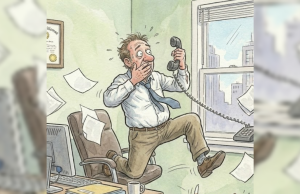10 things You Should NEVER Put Inside A Microwave

The microwave can be a magical kitchen gadget. It is convenient and simple to use.
However, even with the most advanced and sophisticated microwave oven, there are some drawbacks or limitations to how we should use it.
Here are 10 things you should avoid putting in your microwave oven if you want to avoid serious damage or injury.
1. Nothing
A microwave oven focuses heat waves to an object. If it is empty, there is nothing for the waves to focus on and the microwave itself will be heated. This can cause the appliance to malfunction or even explode.
2. Hard-boiled eggs
Microwaves cook at such high temperatures that trying to cook an egg creates an abundance of steam in its shell. The steam rises in the egg, and before you know it, you’ll probably have an egg explosion to clean up.
4. Aluminum Foil
This is essentially a very thin metal that, when exposed to microwaves, reflects energy instead of absorbing it. This can create sparks that can damage the appliance or, worse, cause a fire.
4. Paper bags
Some paper bags are lined with plastic on the inside to prevent moisture from tearing the paper. The plastic can melt when the microwave is turned on, emitting toxic fumes and even catching fire.
5. Sauce not covered
This may not be dangerous. But you’ll definitely spend a lot of time cleaning up the mess. The heat causes the sauce to swell and if it’s not covered, it will splatter the microwave.
6. Hot peppers
Raw chilies will not explode in the microwave. However, they contain a compound known as capsaicin that vaporizes at high temperatures. The fumes can be very dangerous if exposed to your eyes or breathed in.
7. Butter Containers
Most containers used to store dairy products like butter or yogurt are not dense enough to withstand high levels of heat. The plastic can melt and contaminate the food inside. And as already mentioned, plastic can easily catch fire. But then again, who would want to heat a butter inside the container?
8. Styrofoam
Styrofoam is not only bad for the environment, it also melts quickly if exposed to radiation. Like plastic, it can release harmful chemicals into your food and potentially cause long-term illness.
9. Grapes
The water in grapes expands at high temperatures. The water inside the fruit has no room to escape, causing it to explode.
10. Frozen meat
Microwaving frozen proteins can lead to uneven cooking and even the growth and spread of harmful bacteria. If you must, defrost your protein in the microwave, then cook it thoroughly in the oven, on the stovetop or on the grill before eating.




















